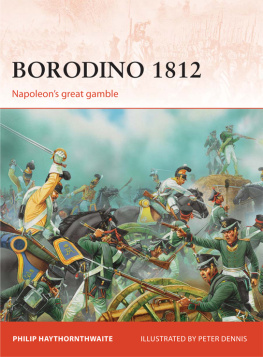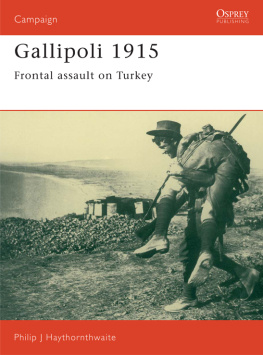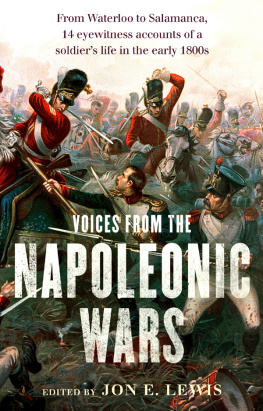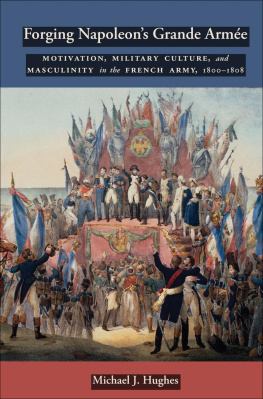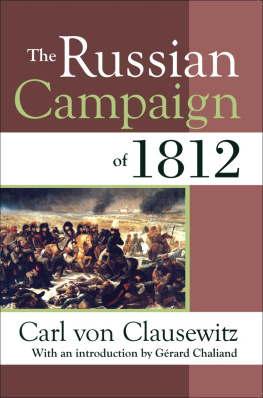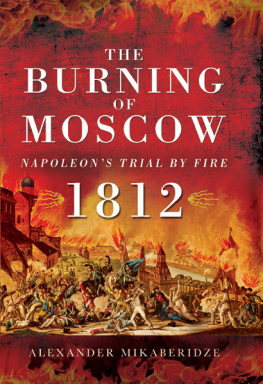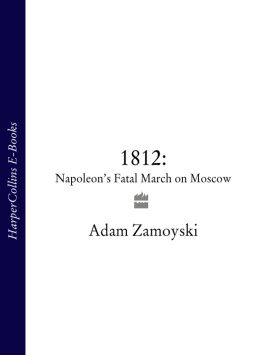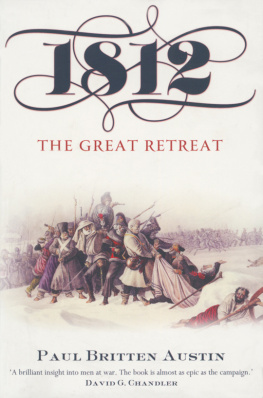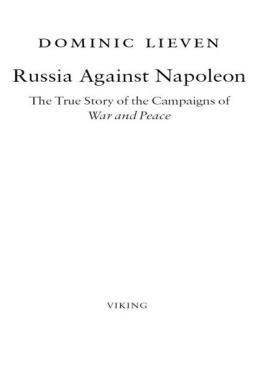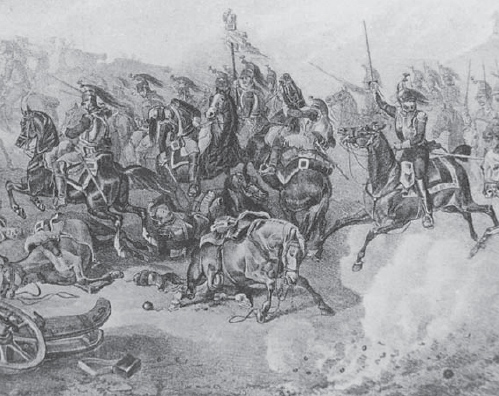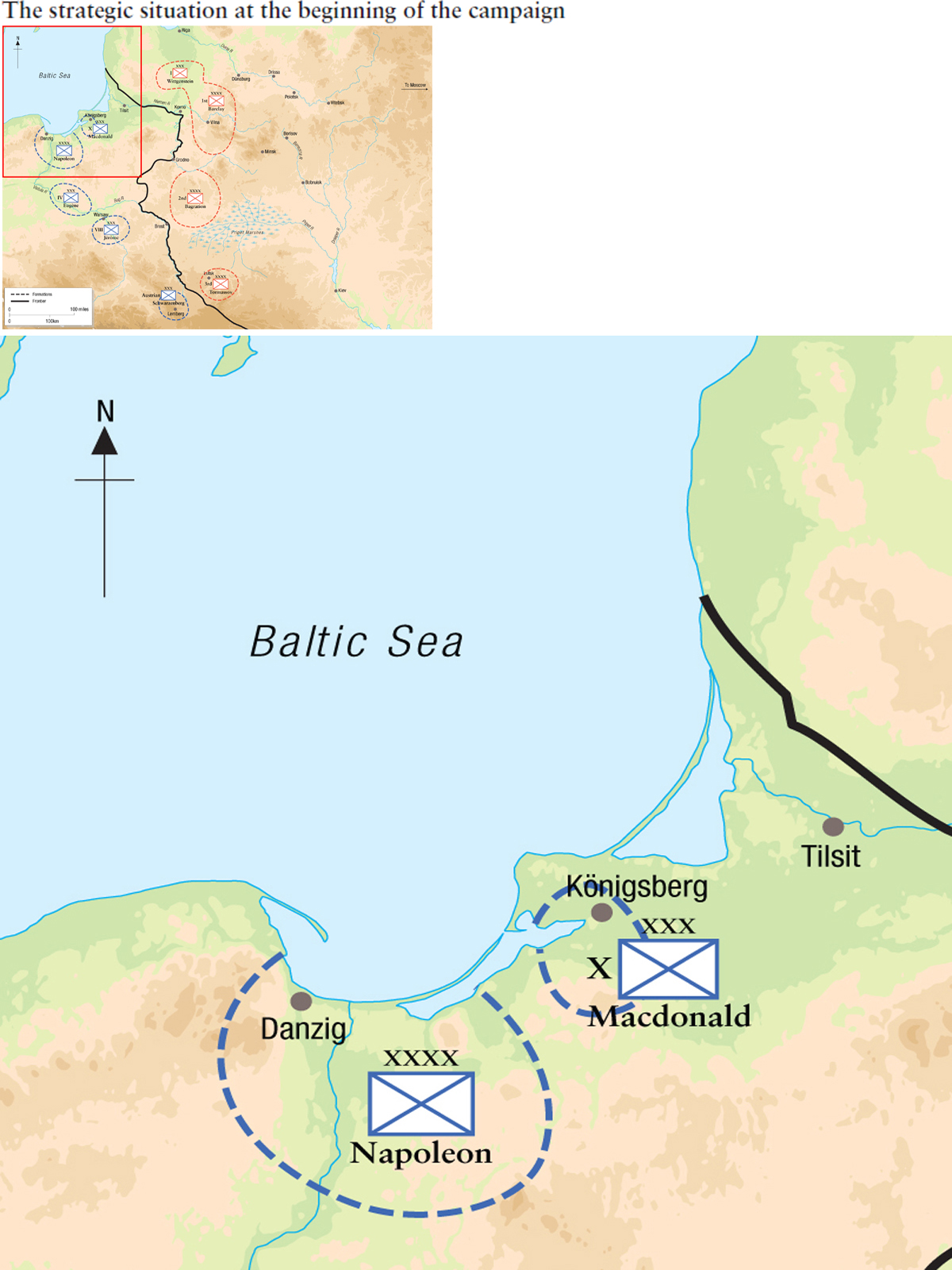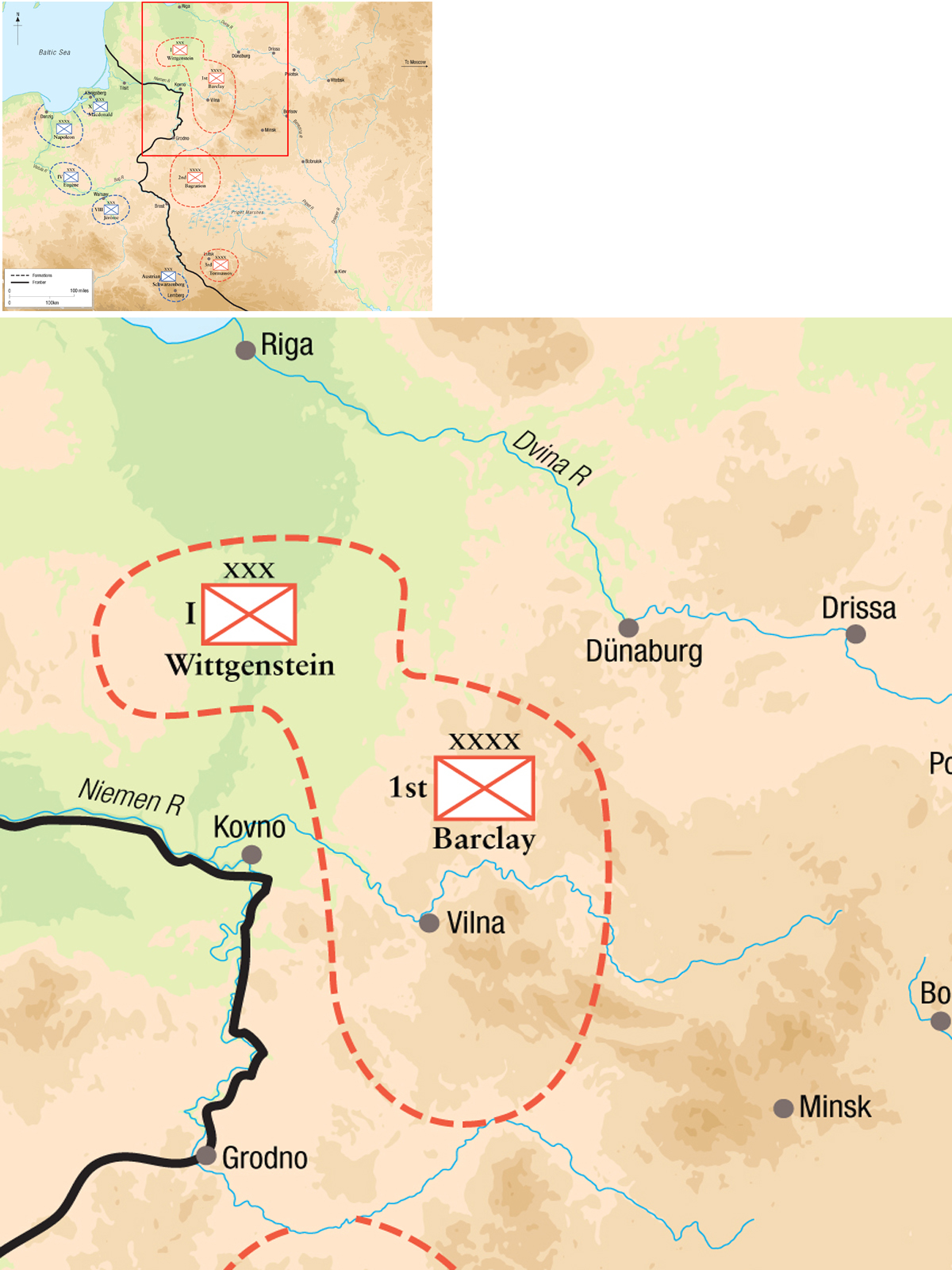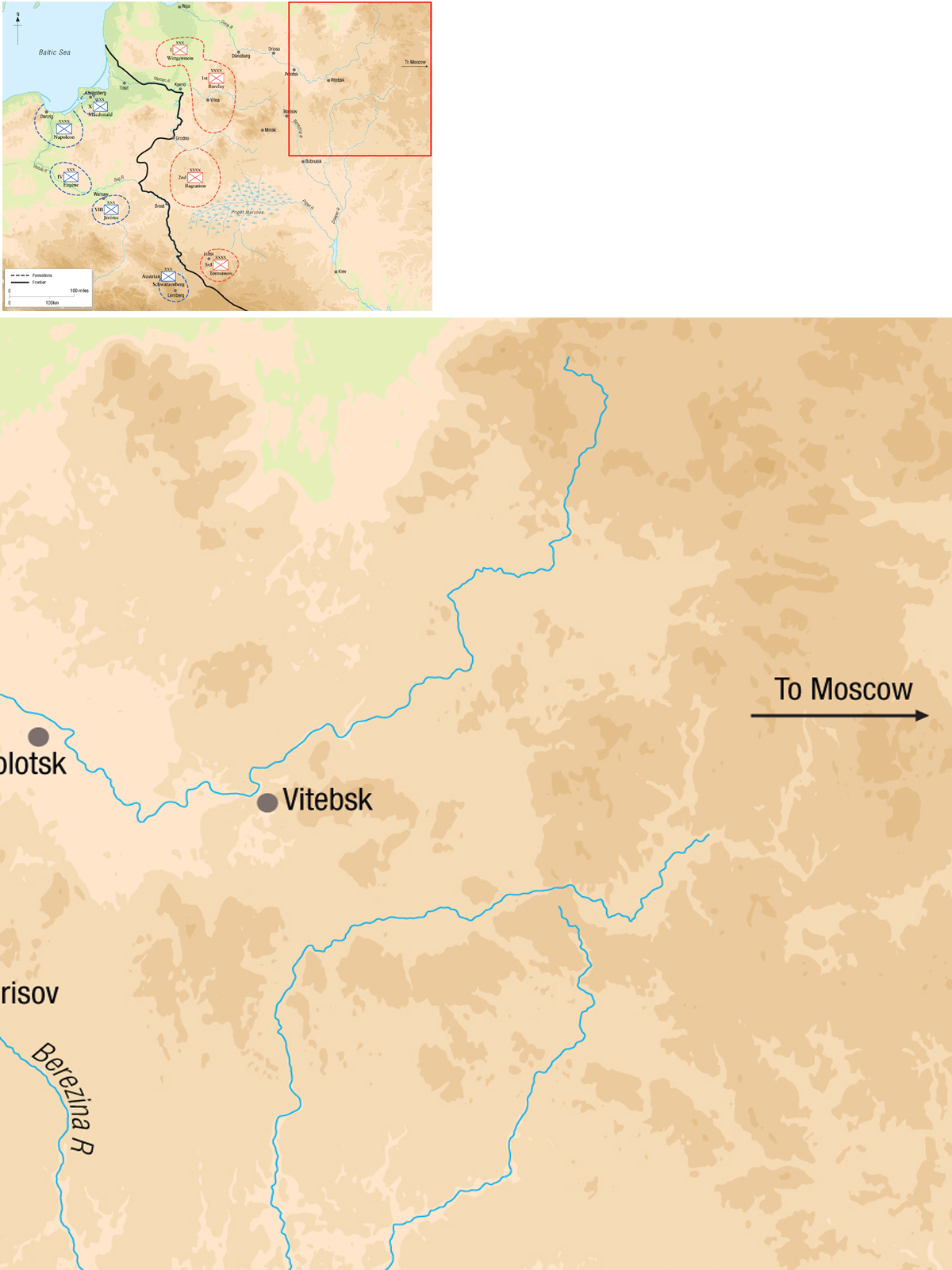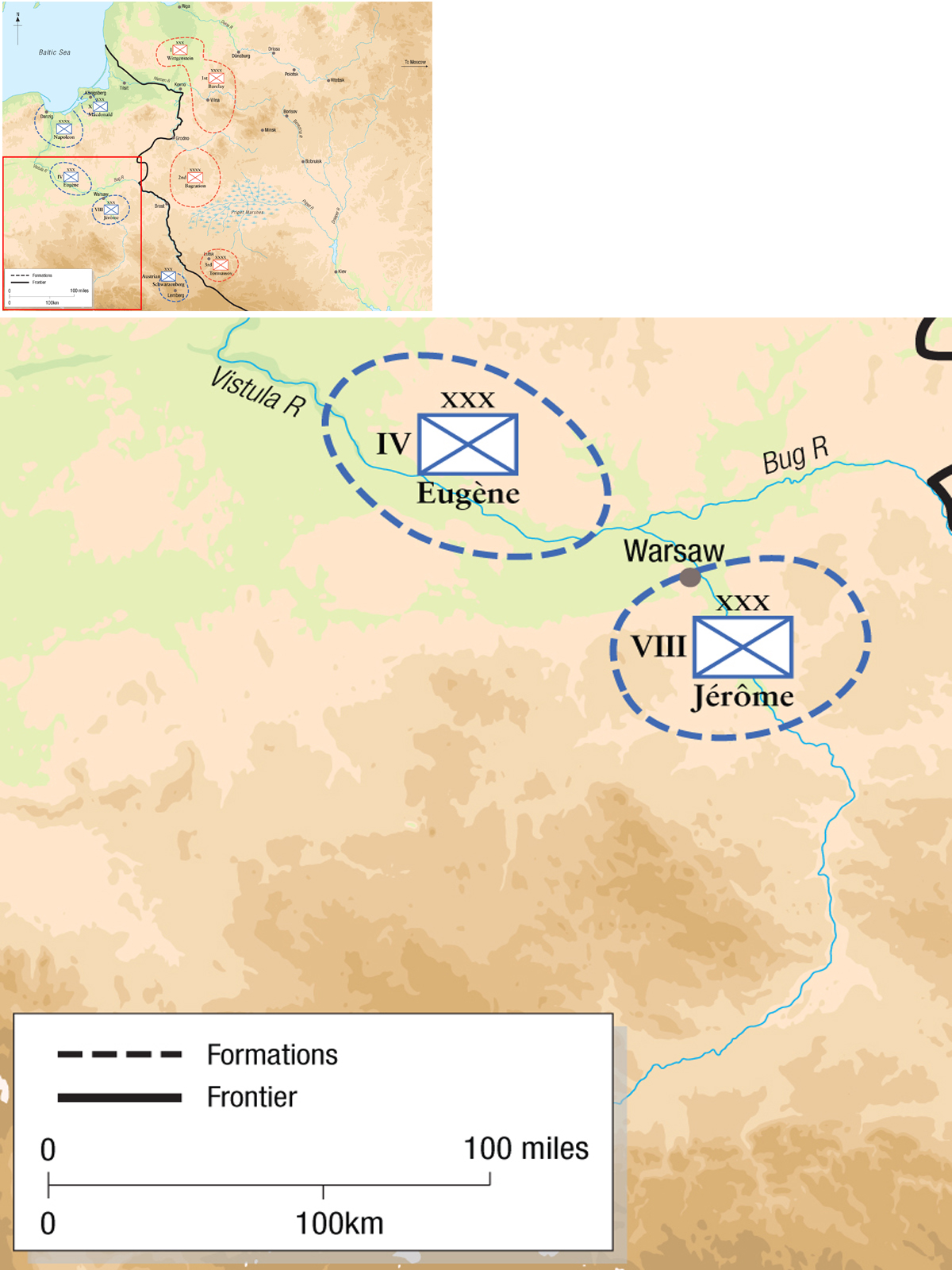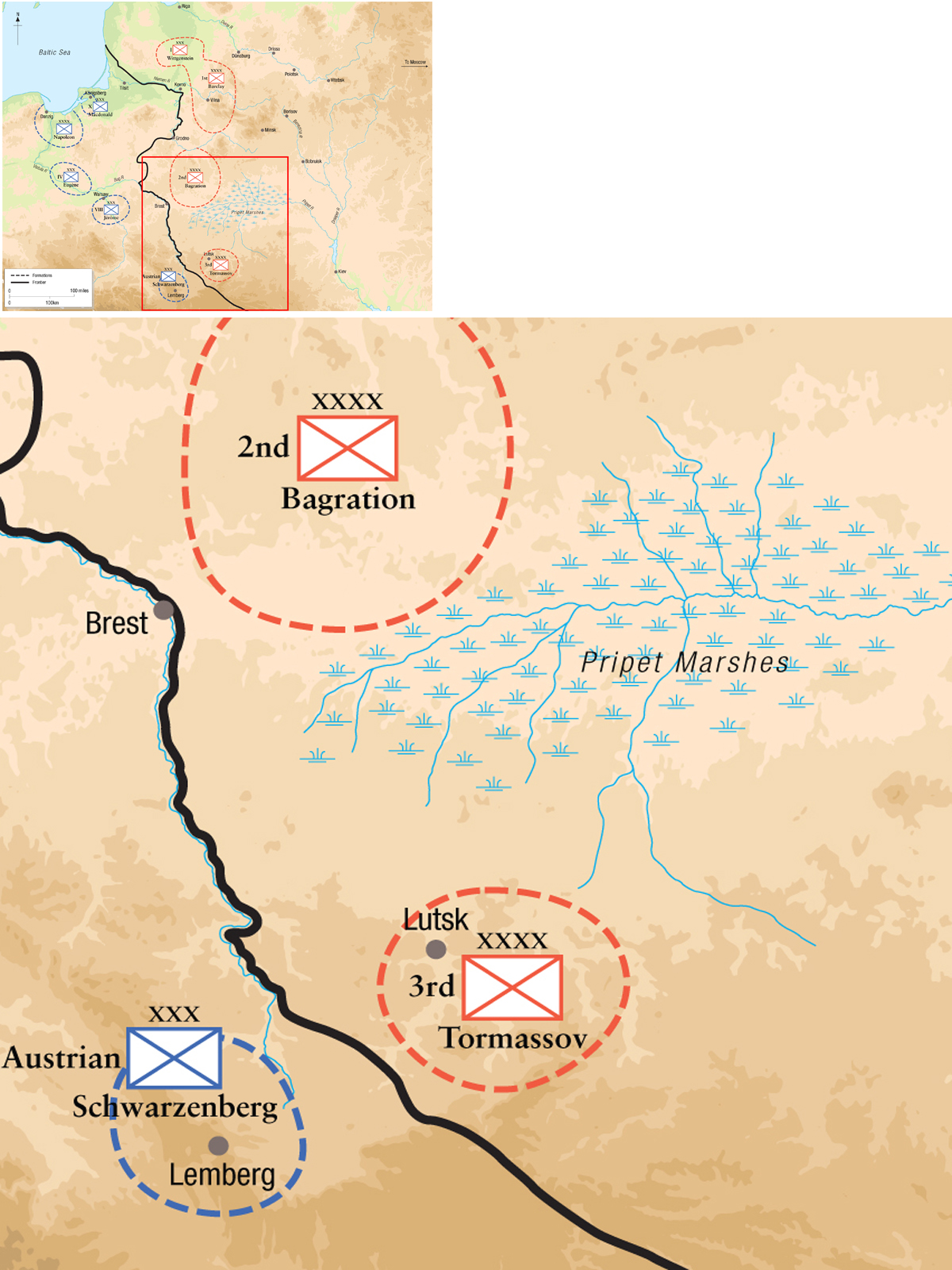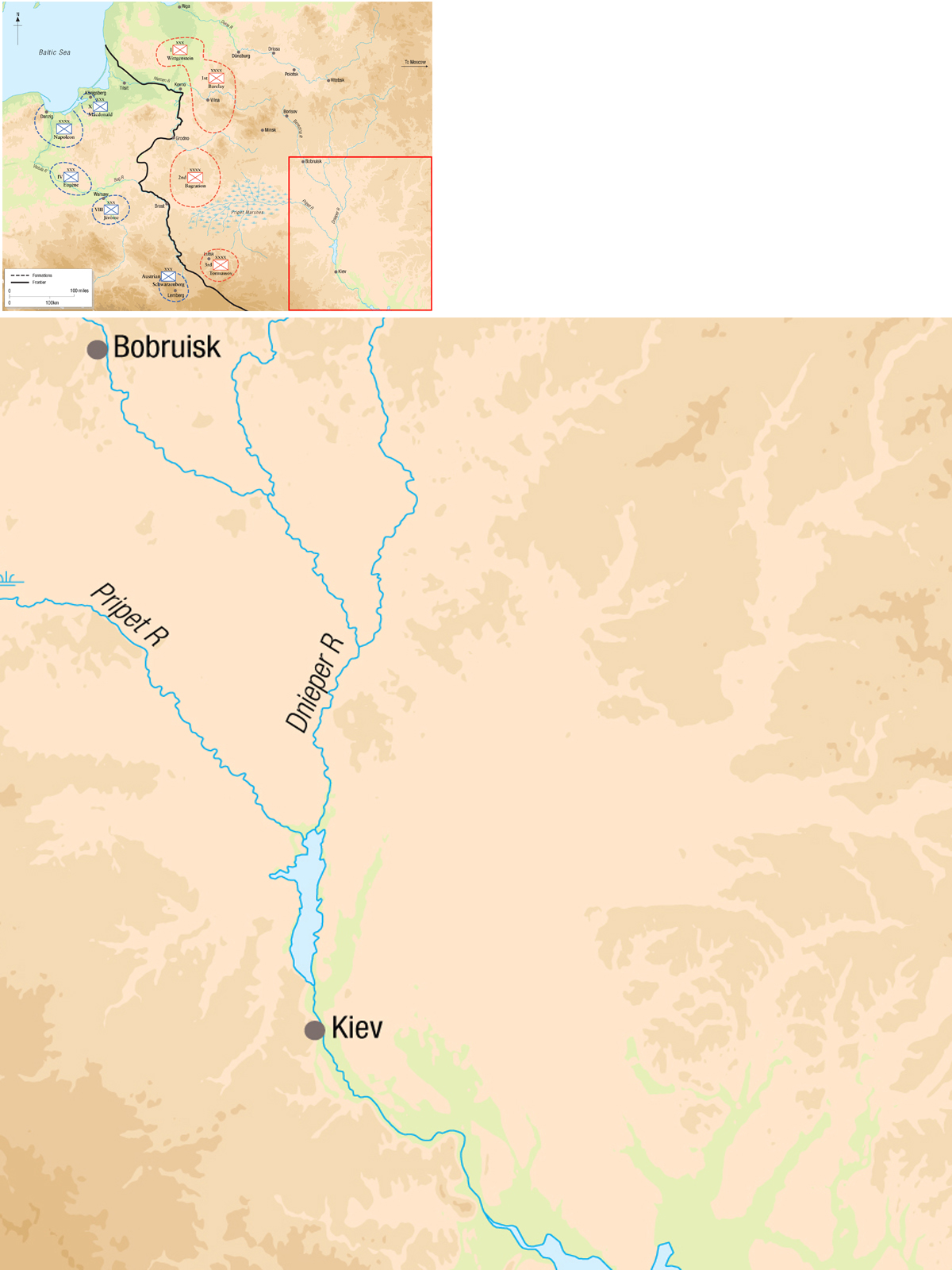CAMPAIGN 246
BORODINO 1812
Napoleons great gamble
| PHILIP HAYTHORNTHWAITE | ILLUSTRATED BY PETER DENNIS |
Series editor Marcus Cowper
CONTENTS
THE ROAD TO BORODINO
In the year 1811 it appeared that Napoleon Bonaparte was at the zenith of his power. He ruled France as emperor, northern Italy as king, and had recently annexed the Kingdom of Holland. His brothers ruled in Spain and northern Germany, his brother-in-law in the Kingdom of Naples, and much of the remainder of Germany was bound into the Rheinbund (or Confederation of the Rhine), an organization of satellite states of which the principal purpose was to support the French emperor. Napoleons three Continental rivals appeared neutered: Prussia, defeated catastrophically in 1806, was reduced to temporary impotence; Austria, defeated in 1809, was in an alliance with Napoleon cemented by his marriage to the daughter of the Austrian emperor; and Russia, defeated in 1807, was also in an alliance following the Treaty of Tilsit that concluded Franco-Russian hostilities.
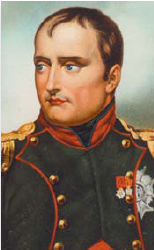
In 1812 Napoleon was at the height of his political and military authority; in this portrait he wears his favourite uniform, that of the Chasseurs Cheval of the Imperial Guard. (Print after Horace Vernet)
Napoleons situation, however, was not as secure as it might have appeared. His most intractable enemy, Britain, was not only supporting Spanish resistance to the rule of Joseph Bonaparte, but continued to conduct a naval campaign directed against Napoleons commerce. His attempt to strangle British trade by denying it access to ports under his control, the so-called Continental System, had already proved a contributory factor to the beginning of the Peninsular War, and by 1811 was imposing a major strain upon his relations with Russia.
Tsar Alexander I of Russia seemed to his contemporaries to be an intriguing contradiction. Ruler of the most autocratic state in Europe, one which still maintained serfdom, he also possessed liberal ideas and initially seems to have admired Napoleon, an admiration heightened by their meeting at the conference that decided the Treaty of Tilsit. Alexander initially implemented the Continental System, even to the extent of entering a formal state of war against Britain, but it had a destructive effect upon Russian commerce, and it had become obvious that Alexander was conniving at evasions of the system. Other factors also contributed to the worsening of Franco-Russian relations, including the establishment by Napoleon of a client state in Poland, the Duchy of Warsaw, which aroused much suspicion among Russians who regarded Poland as almost their own fiefdom. Napoleon was seen as working against Russian expansionist aspirations in the Balkans and other regions of the Ottoman Empire and Persia, and another cause of friction was Napoleons annexation of Oldenburg, whose duke was the Tsars brother-in-law. The appointment of Napoleons marshal Jean-Baptiste Bernadotte as crown prince and heir-apparent to the throne of Sweden though he was actually mistrusted by Napoleon made it appear that he was attempting to surround Russia with enemies, causing even more disquiet among the Tsar and his advisors.
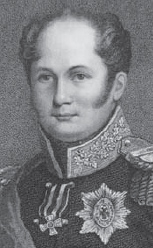
Tsar Alexander I (17771825), one of the most influential personalities in European politics. (Engraving by H. Mayer)
Ostensibly Napoleon claimed to believe that the Tsar was planning to make war on France, despite assurances to the contrary from his ambassadors to Russia, Armand de Caulaincourt and, from 1811, Jacques-Alexandre Lauriston. By the late summer of 1811 Napoleon seems to have been convinced that a new war against Russia was necessary, to confirm the campaign against British commerce and to put a rival in his place. Subsequently Napoleon claimed that this famous war, this bold enterprise, was perfectly involuntary in my part. I did not wish to fight; neither did Alexander; but being once in presence, circumstances urged us on, and fate accomplished the rest; and that it was a war of good sense and true interests; a war for the repose and security of all; it was purely pacific and preservative I had no wish to obtain any new acquisition; and I reserved for myself only the glory of doing good, and the blessings of posterity I never acted more disinterestedly, and never better merited success. Such claims ring hollow, especially for the countless thousands who died in consequence of his actions.
For the planned enterprise, Napoleon would demand support from all his allies, including from Austria and, albeit unwillingly, from Prussia; yet in the period before the commencement of hostilities it was Russia that achieved most diplomatically. Far from presenting a pro-French threat, Bernadotte edged cautiously towards an accommodation with Russia, initially adopting a stance of neutrality which ultimately developed into an alliance against Napoleon. Russias smouldering dispute with the Ottoman Empire over the principalities of Bessarabia, Moldavia and Wallachia was resolved, with British mediation, by the Treaty of Bucharest in May 1812, which permitted the transfer of Russian troops from the Ottoman frontier to the focus of the looming war against France. Finally, in July 1812 Russia concluded an alliance with Britain. By these measures the Tsar was able to focus all his attention upon resisting Napoleons forthcoming attack.
. Las Cases, comte de, Memoirs of the Life, Exile and Conversations of the Emperor Napoleon, London 1836, Vol. IV, pp. 109, 1920.
CHRONOLOGY
| 1807 |
| 78 February | Napoleon defeats Russian army of Levin Bennigsen at Eylau. |
| 14 June | Napoleon defeats Bennigsen again at Friedland. |
| 79 July | Treaty of Tilsit, sealing peace between France and Russia, by which Russia acceded to the Continental System and recognized the Duchy of Warsaw. |
| 1812 |
| 24 March | as tension between Russia and France comes to a head, Russia agrees an alliance with Sweden, beginning to gather allies. |
| 15 May | as he prepares for the campaign, Napoleon is received by the King of Saxony near Dresden; other allies and clients attended subsequently. |

